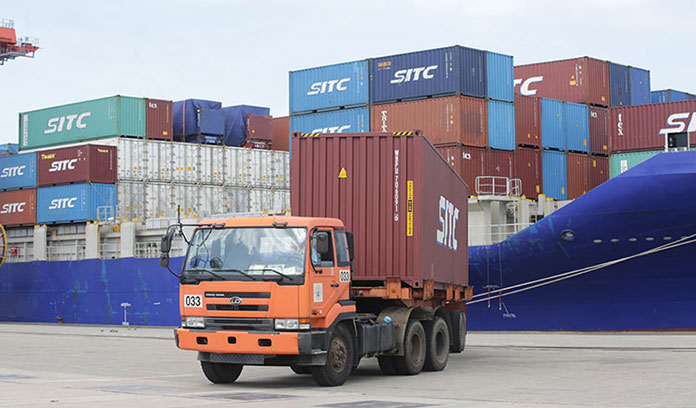A Slowdown In US Could Hurt Cambodia’s Exports

Investors in Southeast Asia are bracing for the potential impact of a recession in the US even as the world’s largest economy nears its longest stretch of growth in history.
Vireak Mekong Strategic Partners, a Phnom Penh-based investment manager and advisor, says it expects “quite a bit” of a slowdown in the US, which will have some impact on Cambodia’s exports.
“We’re more concerned about the (US’) weak fiscal position, and the inevitable come-down from the sugar rush that the recent tax cuts provided at very much the wrong stage of the cycle,” managing partner Stephen Higgins said.
“Cash is really king at the moment,” said Oriano Lizza, a sales trader at CMC Markets in Singapore. Investors with a large portion of assets held in more illiquid investments such as property, or even stocks, could find themselves stuck in case of a recession, unable to sell, Mr Lizza said.
At one of Asia’s biggest pension funds, a buy-side analyst says he has pulled out entirely from stocks, in preparation for “a sharp market correction.”
On Monday, Reuters reported the yield curve between US three-year and five-year notes, and between two-year and five-year paper inverted – the first parts of the Treasury yield curve to invert since the financial crisis, excluding very short-dated debt. An inversion of the two-year, 10-year yield curve is seen as a predictor of a US recession – as it has been a bellwether of slowdowns in the past. The move in the key signal helped kill off a relief rebound for most global markets after the US and China reached a trade truce.
The Nikkei’s Asia300 Index of Asia’s most prominent firms fell 0.1 percent. Singapore stocks were among the top losers within Southeast Asia with a 0.8 percent drop, while Malaysia’s KLCI benchmark index fell 0.4 percent.
“An inversion means conditions are ripe for a credit crunch,” said Pong Teng Siew, director at Inter-Pacific Research in Kuala Lumpur, Malaysia. “When the yield curve inverts, the banks are lending at rates lower or the same as deposit rates. They will not write loans as they cannot earn a yield spread. This causes credit expansion to grind to a halt.”
CMC Markets’ Mr Lizza argues that a large part of growth over the past decade has been fueled by debt. Lenders could ask for their money back in a recession, leaving corporates in a “precarious situation,” he said.
Japanese financial powerhouse Nomura Securities says it has been fielding questions from clients about “late cycle signals” – indicators that the best is behind for the US economy, after almost ten years of growth. The bank forecasts a slowdown for the US economy in 2019 as the effects of President Donald Trump’s fiscal stimulus and tax benefits begin to fade.
The concerns over the end of the US’ economic cycle underscore fears that a slowdown for the superpower would drag down the rest of the world with it. BlackRock, the world’s biggest fund manager, warned investors Monday to not ignore the risk of a recession amid a “late cycle environment,” urging clients to build more defensive-type portfolios.
J.P. Morgan Asset Management told investors cash would now offer better risk-adjusted returns as compared to equities, citing “rising macroeconomic risks” swirling over the outlook for stocks.